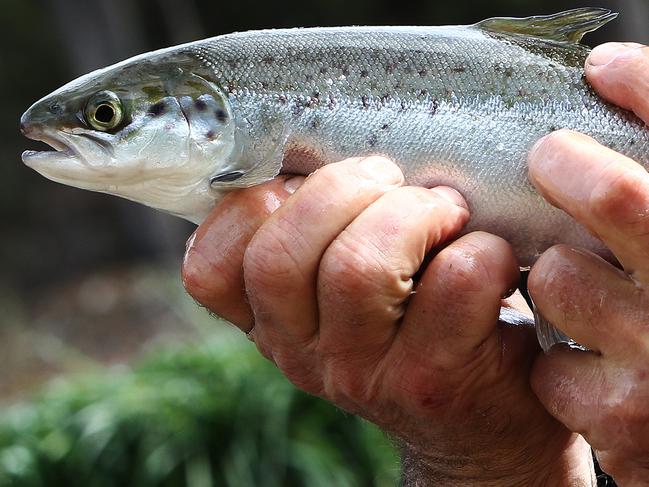Talking Point: Fake news can ruin friendship — and hurt industries like salmon
HELEN POLLEY: Disinformation hurts society and valuable industries including Tasmanian aquaculture

Opinion
Don't miss out on the headlines from Opinion. Followed categories will be added to My News.
It is a disturbing reflection on our society that social media is becoming a place of fake news, disinformation, fearmongering and outright lies.
It is not new, but the extent to which it influences our views is compounded by our ability to access information in the palm of our hands at any time. Social media does not have a moral or ethical compass. Social media giants have admitted misinformation in the 2016 US election, Brexit elections and others may have affected the outcome.
Posts, tweets, false news articles, video and memes confirms bias. Then people with a particular view “like” pages that reinforce their views and we are becoming less likely to want to have our views challenged. Most people prefer to have their views reinforced among friends and people they associate with. This reinforces a silo opinion society and people are becoming less tolerant of different views. Friendships are tested and people risk being ostracised because people disagree and dislike one another because of it.
Sharing unchecked misinformation establishes false narratives that appear real and once they go viral, more and more people believe it without challenging it.
Disinformation can cause alarm and distress. Only 2 per cent of coronavirus cases have resulted in death yet social media and the media, because they are so pervasive, have caused mass fear and anxiety, affecting trade, business and people’s way of life.
Sustained social media attacks on people or an industry that affect livelihoods are particularly dangerous. Recently in Tasmania disinformation has been circulated on the Tasmanian salmon industry, which supports more than 8500 jobs, most in regional areas. A study last year found fisheries and aquaculture benefited the Tasmanian economy by about $1.15 billion a year. Over the next decade, demand for seafood is expected to double, creating a regional jobs boom.
We must invest more in aquaculture and vocational training so people have the opportunity of a local job they can rely on. The industry deserves protection against misinformation with an intent to destroy jobs. Tasmania needs to focus on sustainable long-term jobs, and the aquaculture industry can provide these jobs.
If we allow fake news and disinformation to undermine our state it will damage the industry and clean green Tasmanian brand. Destruction of the forest industry saw catastrophic job losses and our state is still feeling the consequences in budget revenue. This cannot be allowed to happen to the aquaculture industry.
Finding factual information is increasingly difficult. I urge you to monitor your social media and news consumption. Verify sources and question the information you are consuming. Unfollow pages you think are harming intelligent debate. It is a dangerous thought, but maybe give the palm of your hand a rest by putting your phone down and talking to someone.
We must not let disinformation consume our relationships. Differing points of view should build tolerance in the community, not create silos. If we allow this to continue, our society will only become more intolerant of each other’s views and each other. A dangerous path to go down in a country that once prided itself on not taking each other too seriously.
Helen Polley is a Labor senator for Tasmania.


